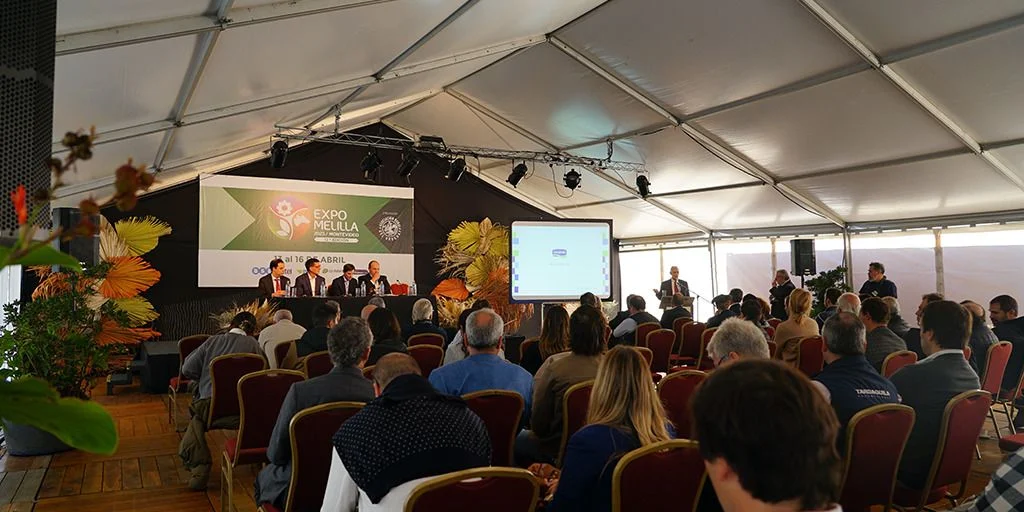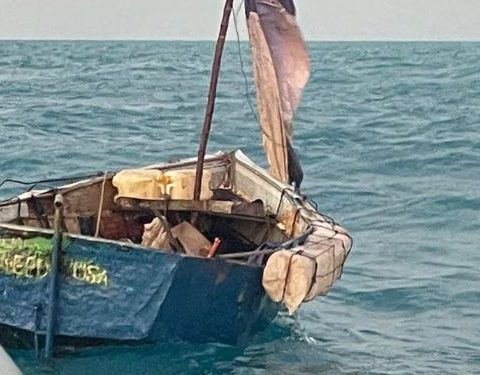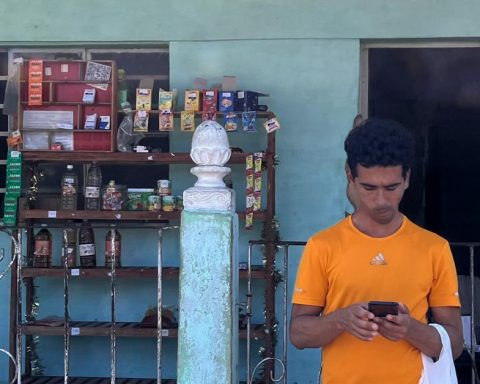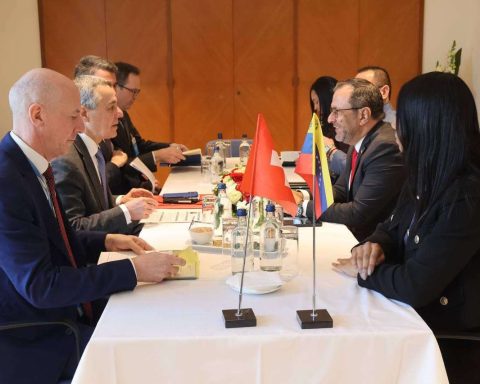Conrad Ferber, president of the National Meat Institute (INAC), highlighted The Observer the high value that for Uruguay it would mean enter the Trans-Pacific Agreement on Economic Cooperation –and not only for the meat agribusiness sector– and urged to follow the example of Korea, which is advancing with an attitude opposite to that of Uruguay: Far from making the request and waiting, it began to resolve regulatory aspects so that once the proposal is made and it is quickly approved, it will access the benefits that it considers to be part of the agreement.
Ferber considered that and contributed other concepts when explaining why INAC dedicated its traditional conference at Expo Melilla, recently organized by the Rural Association of Uruguay (ARU), to this topic.
The president of the national meat institute recalled that When the current government administration began, in 2020, one of its premises was commercial openness, “opening ourselves up to the world and in its broadest sense”.
He admitted that there are sectors that “must be taken care of, transformations and movements must be progressive, but at the end of the day the consumer will have the best conditions to the extent that they have access to the most efficient production, rather than meat and some another product has been achieved, but there are cases in which other markets are more efficient and our consumer must have access to that better performance”.
What happens in the destinations?
Ferber analyzed that in the case of the United States, “we have been corseted for many years in a quota that limits us, we have not been able to find a valid formula to improve it, and once it is fulfilled we begin to pay 26.4% tariffs and it is very difficult for us to compete with Australia and others”.
In the case of Europe, “it is a fundamental market because it is a destination for high-value cuts, today depressed due to the economic effects of the covid, added to the fact that in recent years there has been a progressive reduction of the 481 quota, responsible for of a radical change in our productive matrix”, and in the case of the Hilton quota “after the division that generated Brexit we were left with just under 6,000 tons in Europe and just over 700 in the United Kingdom”.
Beyond the long-awaited agreement between Mercosur and the European Union, “hopefully it ends up landing, at this moment there seems to be an opportunity between the move of the president of Brazil -Lula- and the pro tempore presidency of Spain in the EU, which It would be great news, but the reality is that in the meantime we must continue to look towards Asia”.
In this sense, in Asia “we have Japan, Vietnam, obviously China, Malaysia, Indonesia… huge markets, growing and with a very important advantage: they sell the entire set of products, not just the cuts that we are used to in the West to consume”.
Despite the wishes of Uruguay and the meat chain, the Free Trade Agreement (FTA) with China, Ferber said, “today appears at least slowed down, Brazil entered again to carve, to want to incorporate Mercosur into the agreement and that Logically, China does not advance in negotiating only with Uruguay, and because it is a destination with such a large volume, reducing the 12% tariff would be very important, which is why the situation is worrying, but it seems out of our control.”

INAC
INAC conference at Expo Melilla 2023.
Play in the first division
This reality establishes, Ferber considered, that “the great agreement for us today is the Trans-Pacific, which considers not only very large markets, but also absolutely complementary markets with Uruguay”and I add: “Entering the Transpacific, like no other, depends on our attitude”
If accepted, “it would be like going on to play in the first division, almost all the problems would be solved, that agreement is currently made up of 11 very important markets and entering would be accessing a mountain of fundamental markets with a single move.”
He suggested, on this issue, “Also look at the cost of not doing it: with each passing day we will be less competitive outside”.
Inside, he pointed out, are, for example, Australia and New Zealand, Uruguay’s direct competitors, “with each passing year they will pay less tariffs to enter Japan with their products, for example, we pay 38.5% there, Australia already pays much less and it will pay less each year, with which all the effort we make to consolidate ourselves in that market will be sterile because that tariff distances us”.
After indicating that “it is not unreasonable to think that in the Trans-Pacific Agreement, in addition to finishing the United Kingdom entry process, the United States, which has already been there, will return,” he emphasized that “being seated at that table and as soon as possible is very important.”
Ferber stressed that The Trans-Pacific Agreement already has the conditions and requirements that Uruguay should comply with fully established, they do not have to be negotiated, they just have to be fulfilled.
Go to the ball and not wait for it
Considering all of the above, and the local characteristic of discussing each decision in depth, INAC decided to make a contribution and for this purpose commissioned the three universities (Universidad de la República, Universidad de Montevideo and Universidad Católica del Uruguay) to carry out a study on the incidence of the requirements of the Trans-Pacific Agreement, particularly in relation to local regulations and the need to adapt public companies and monopolistic situations.
“It became clear from that study that there is nothing that is impossible to comply with, our public companies do not hinder the agreement at all, some regulatory changes must be made, but it is nothing that we cannot do because they go in the direction in which Uruguay is goingFerber said.
The results of the study of university professionals (available on the INAC website) were presented at the Institute day at Expo Melillawhere one of the messages left is that, for example, “Korea has not yet formally requested entry, we know it will, but first it is making the regulatory changes based on what the Trans-Pacific Agreement requires, that is, it is ahead of the game, it makes the changes so that the day it makes the proposal that finds it prepared”.
Contrasted with this is the position that has been traditional in Uruguay: “After thinking about it and discussing it a lot, I ask to enter, then I wait for the answer and if it’s positive, then I start to do what I have to do to be accepted.”
The president of INAC said that, for this reason, It is essential to “move, anticipate the play, not wait for the ball to reach us, we have to go looking for the ball, which is nothing more than to start analyzing the regulatory changes”.
It was clear, from what the panelists Ignacio Bartesaghi and Marcelo Sheppard explained, that “there is nothing insurmountable for Uruguay to move towards being ready and request to be part of the agreement,” Ferber stressed.
He also pointed out the importance of “going to those 11 countries, lobbying, visiting them continuously so that they know what Uruguay is, that we are interested, that we can meet what is required and that we have our contribution to the agreement, that is a job of Foreign Relations and for us it is fundamental that it is being done”.
The cuckoo of patents
The other chapter that “generates noise,” Ferber admitted, is for Uruguay to sign the patent agreement: “For many years it has been one of the cuckoos of Uruguay’s insertion in the world,” he defined.
“Those who were on the field in the years in which the bilateral trade agreement with the United States was discussed say that the great reason why Uruguay did not face that agreement was because of the cost it was going to have, especially for the pharmaceutical sector, they spent years and we still haven’t signed it and almost all the countries have signed it, except Uruguay, Argentina and Bolivia, two or three countries in Africa and two or three countries in Asia. It was signed by China, it has been signed by Brazil since the 1970s, of course all of Europe… one sees the map with the countries that signed it painted in blue and those that did not in white and it generates at least surprisehe mused.
He added that this has been discussed since then without having numbers on the table: “Really, how much does it cost? The INAC, in an agreement with the Ministry of Industry –our vice-president is a delegate of the ministry on the INAC board of directors–, which is in charge of the issue of patents, commissioned a study by the economists Juan Dubra and Néstor Gandelman, two professionals first line, absolutely independent, who made it clear during the day of Expo Melilla that there will be no harm to Uruguay, that for the pharmaceutical industry it will be very minor, almost anecdotal, there will not be a problem in the cost of the products, it was studied what happened in the countries where it was signed, with which we put on the table a first impact study that had never been done”.
Ferber indicated that the pharmaceutical companies published a study, “but it did not include numbers, it is conceptual, it suggests that they would suffer damages, but we understand that today everything is much more mature and both pharmaceutical companies and the agrochemical industry, which could be another actor with damages, understand that it is a step that must be takensurely some measure will have to be taken, I do not rule it out, but Uruguay here has much more to win than to lose”.
He asked to remember that when the agreement that created Mercosur was signed in the 1990s, the big loser, it was said, would be viticulture, it was said that it would disappear in Uruguay, “but the agreement was signed, a plan to reconvert the vineyards was put together and today we have a developed, high-quality viticulture, with a high level, which, far from disappearing, has been strengthened, because competing forces us to improve”.
“If there is something that Dubra made clear in Melilla, it is that this is not an economic problem, it is not going to harm anyone and in any case there is much more to win than to lose”he emphasized.
















